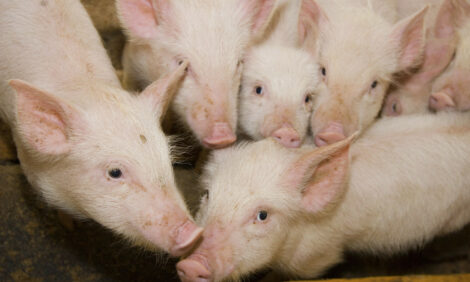MPs Damien O’Connor (Labour), Sue Kedgley (Green) and John Boscawen (ACT) met with the farmers, discussing the risk that PRRS would be introduced to New Zealand if MAF implement Import Health Standards which would allow the import of fresh pork from infected countries.
"PRRS is recognised as the world’s most damaging pork disease. Affected sows give birth to fewer piglets, with increased levels of abortion and increased still births," pork farmer Linda McCallum-Jackson said.
"The bottom line is that PRRS kills pigs – up to 70 per cent of infected piglets die pre-weaning, and another 12-15 per cent post-weaning. Survivors face a quality of life impacted by PRRS.
"In the United States, PRRS costs their pork industry $1 billion a year – that’s a cost our farmers don’t need.
"MAF believe they have all but eliminated the risk of the disease becoming established in New Zealand’s pig herd, but they still lack much of the information needed to make this determination.
"MAF still does not know how much fresh pork might be imported, where it would go once past the border, or how waste would be disposed of.
"An Independent Review Panel made 29 recommendations to MAF last year, which were largely ignored," Ms McCallum-Jackson said.
"If the risk of importing PRRS is as low as MAF say, they could back it up by underwriting costs and losses when the disease arrives. Instead, pig farmers would be expected to foot half the Bill for MAF’s decision.
Most pork farmers believe the risk of PRRS becoming established in New Zealand is much higher than MAF estimates, and would have a devastating effect on their animals and the industry.
"New Zealand has world-leading animal welfare standards, but at the same time, MAF are putting the lives of our animals in danger.
"This is one of few countries in the world free from PRRS. Following biosecurity breaches in the potato and kiwifruit sectors, we don’t need another blow to New Zealand’s reputation for health and freedom from disease," Ms McCallum-Jackson said.
Further Reading












